RECAP: CONNECT Arab America Empowerment Summit 2024 Welcomes Over 480 Guests from 26 States on October 25-26, Making a Significant Impact on the Arab American Community
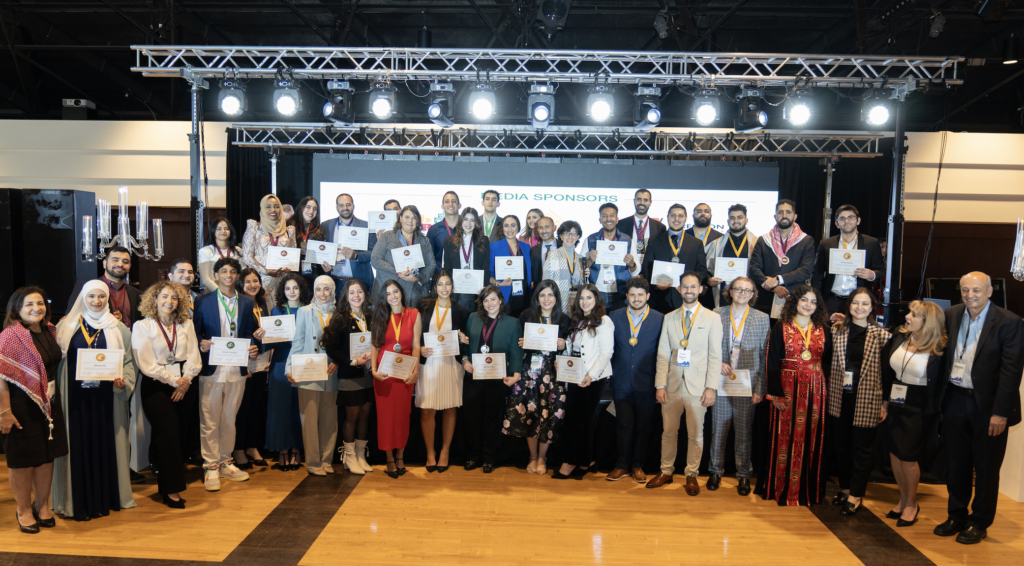
The Arab America Empowerment Summit drew a remarkable crowd this past weekend, with over 480 attendees from over 26 states across the U.S. and abroad. Organized by the Arab America Foundation, the event made a lasting impact, uniting and inspiring the community during challenging times.
“This summit was a pivotal step in fulfilling our mission to celebrate Arab heritage, promote education, build connections, and empower Arab Americans,” said Warren David, co-founder of the Foundation. “We brought together outstanding speakers, dynamic performances, valuable networking opportunities, and participants from across the country.” The summit truly delivered on every front.”
Within the course of two days, the Empowerment Summit held a total of seven panels ranging from the following topics: Strengthening Arab Identity: AAF’s National Movement for Empowerment; A Dialogue on Entrepreneurship and Business Leadership; Empowering Voices: The Emergence of Leadership Amongst Young Arab Americans; Leading Change: Arab Americans in Public Service; Empowering the Arab American Vote: Shaping Our Political Future; Connecting with Arab American Women: We Hear You; We See You, and Countering Misrepresentations of Arabs in America: Media, Civil Rights, and Beyond.
Here’s the Recap:
Strengthening Arab Identity: AAF’s National Movement for Empowerment
To kick off day one with inspiration, we brought together a remarkable panel of leaders:
Mahbuba Hammad, an educator and the California State Co-Team Leader, joined us after receiving the “40 Under 40” Rising Leader Award in 2021. Bassel M. Abdallah, Ohio Team Leader of the Arab America Foundation, brings dedicated leadership to the Midwest. Our team also included Stefan Ateek, a Professor of Social Work and Texas State Team Leader; Eynas Jarrar, Co-Team Leader for New England; and Lina Shatara, Co-Team Leader in Tennessee. This talented group has paved the way, setting a powerful example in driving forward our foundation’s mission.
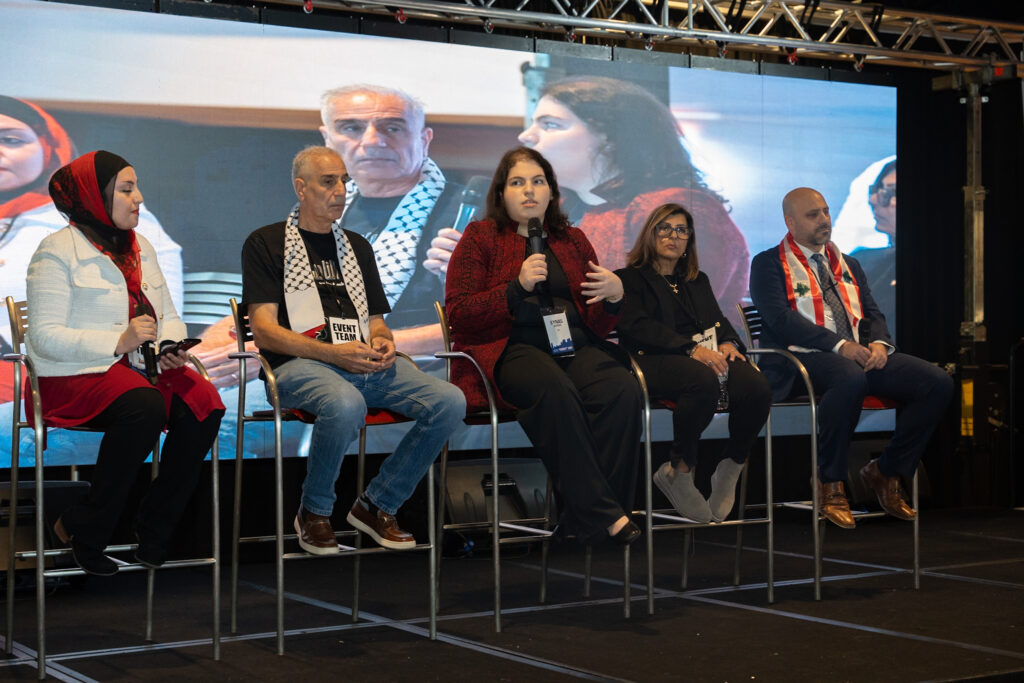
The panel highlighted the efforts of the Arab American Foundation in rallying political support for advancing Arab American interests at the state level. Stefan Ateek brings up a point on how to practice inclusivity on a day-to-day basis, and it’s by “the only way to connect is to really be there with you”. While it may get a bit overwhelming at times, the reality is :
“We as people who are connected are stronger than one person.” – Stefan Ateek.
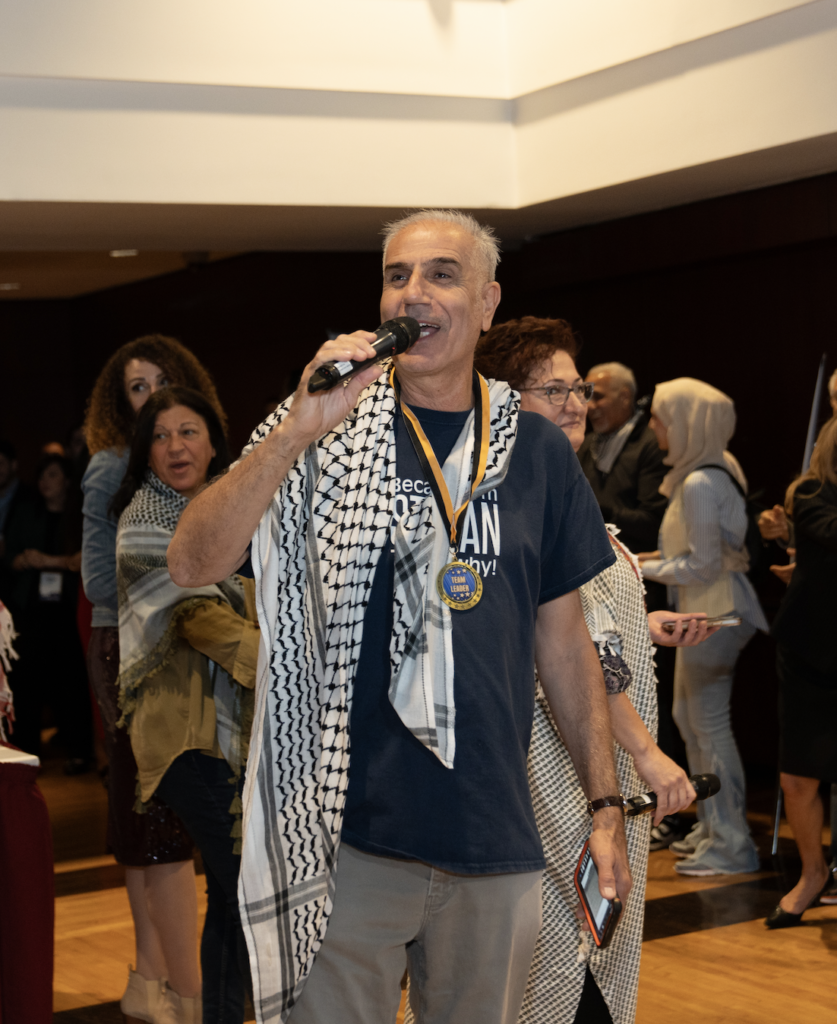
This panel inspired and empowered community members, leaving them eager to make an impact and take pride in a heritage that has long been marginalized. Now, it’s up to us to create change.
A Dialogue on Entrepreneurship and Business Leadership
We enjoyed an engaging panel discussion with esteemed entrepreneurs and business leaders, who delved into essential strategies for innovation, growth, and leadership in a competitive market. The discussion, moderated by Nabeleh Ghareeb, Co-Coordinator of the Rising Leaders Initiative and Michigan Co-Team Leader, featured panelists Susan Dakak, Co-Founder of the Arab Business Enterprise; Bilal Hammoud, Executive Director of the American-Arab Chamber of Commerce; Kamal Shouhayib, Founder and CEO of Choice Properties; and Reda Taleb of the Arab American Women’s Business Council.
The second panel covered topics ranging from the Arab American perspective in the business world to the idea that entrepreneurial drive stems from Arab roots.
“It’s in our blood”
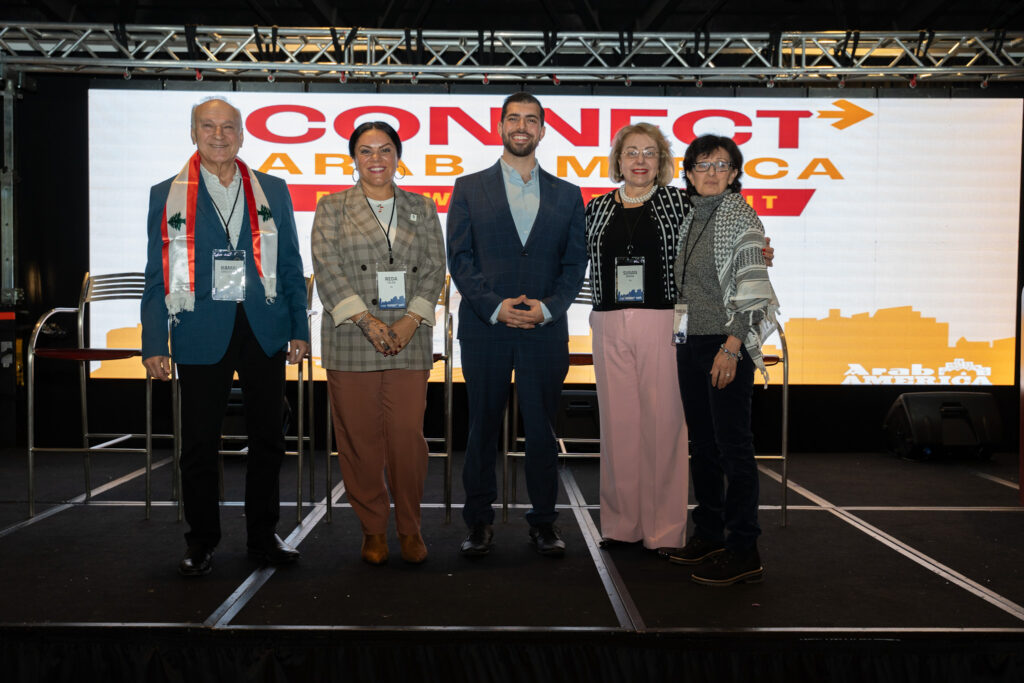
The panel discussed the importance of marketing and branding the Arab identity through small businesses from an Arab American perspective. To effectively promote the Arab identity, it was essential to prioritize the community and the people around them. This approach fostered a deeper understanding of their identity, helped build connections, and enhanced networking opportunities.
Empowering Voices: The Emergence of Leadership Amongst Young Arab Americans
This panel showcased the emergence of a new generation of young Arab American leaders making significant strides across diverse fields. It spotlighted dynamic change-makers who fostered social, political, and cultural advancement while honoring their heritage. Attendees explored the distinct challenges these leaders faced, their strategies for success, and their role in transforming the narrative of Arab American identity and leadership.
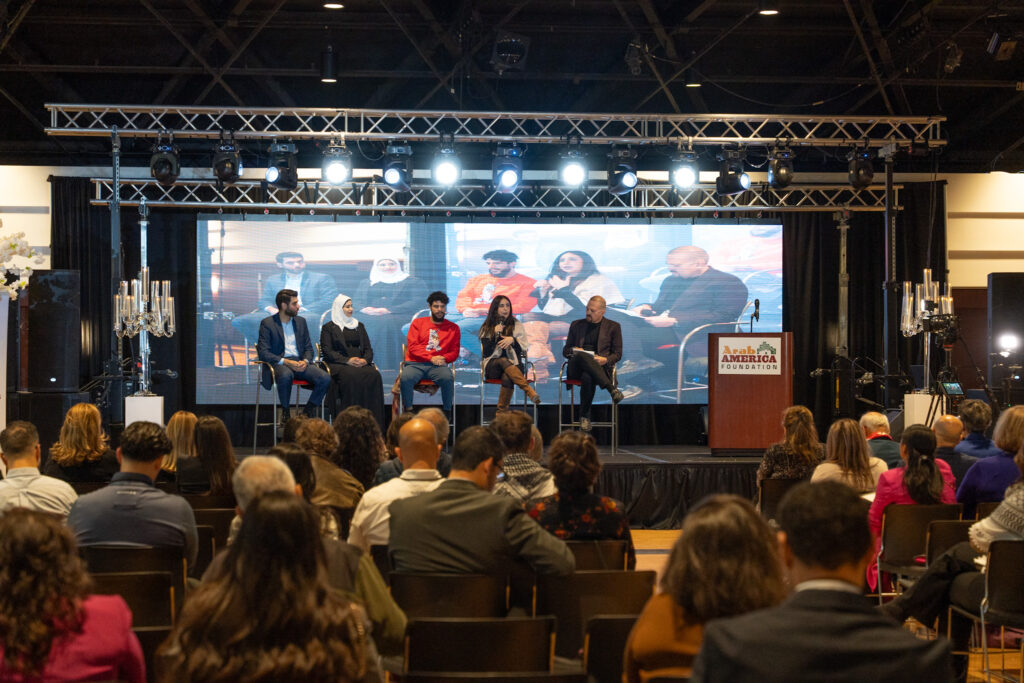
The panel featured several distinguished individuals, including moderator Omar Kurdi, President of the Arab Americans of Cleveland, and a 40 Under 40 Class of 2020 member. Joining him were Asma Ali, an immigration attorney recognized in the 30 Under 30 Class of 2021; Jad-Évangelo Nasser, a global inclusion and cross-cultural expert; Micheline Maalouf, an influencer, mental health counselor and educator celebrated in the 40 Under 40 Class of 2024; and Wesam Shahed, a policy advisor and assistant state attorney for Cook County, also a member of the 30 Under 30 Class of 2021.
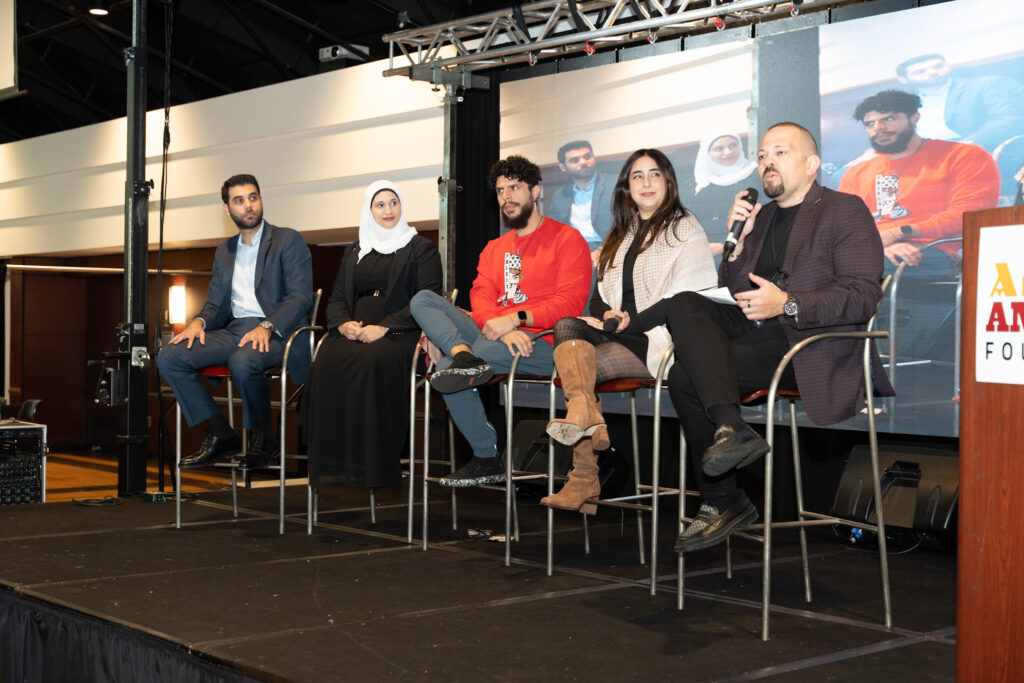
From grappling with generational trauma to navigating transnational borders, our youth have endured numerous challenges as they adapt to honoring their heritage within an American, westernized context. Yet, they hold the key to meaningful change in our community. The panelists we’ve gathered today embody the voices of the future, ready to make a difference in a time marked by political polarization. This generation proudly embraces their Arab heritage and values transparency, and we can only begin to imagine the profound impact they will have in inspiring future generations.
Fann Wa Tarab Concert and Cultural Evening: Three Iconic Voices of the 20th Century
To wrap up our night, our community came together to honor the three iconic voices of the 20th century: Abdel Halim Hafez, Fairuz, and Sabah Fakri, portrayed by singers Nibal Malshi, Abdulsalam Alnajjar, and Zak Baalbaki.
A deep dive into our performers:
Abdel Halim Hafez, affectionately known as the “Nightingale,” infused Arab music with a modern and romantic flair. His songs struck a chord with the youth of his era. Vocalist Zak Baalbaki presented a selection of Hafez’s most celebrated works.
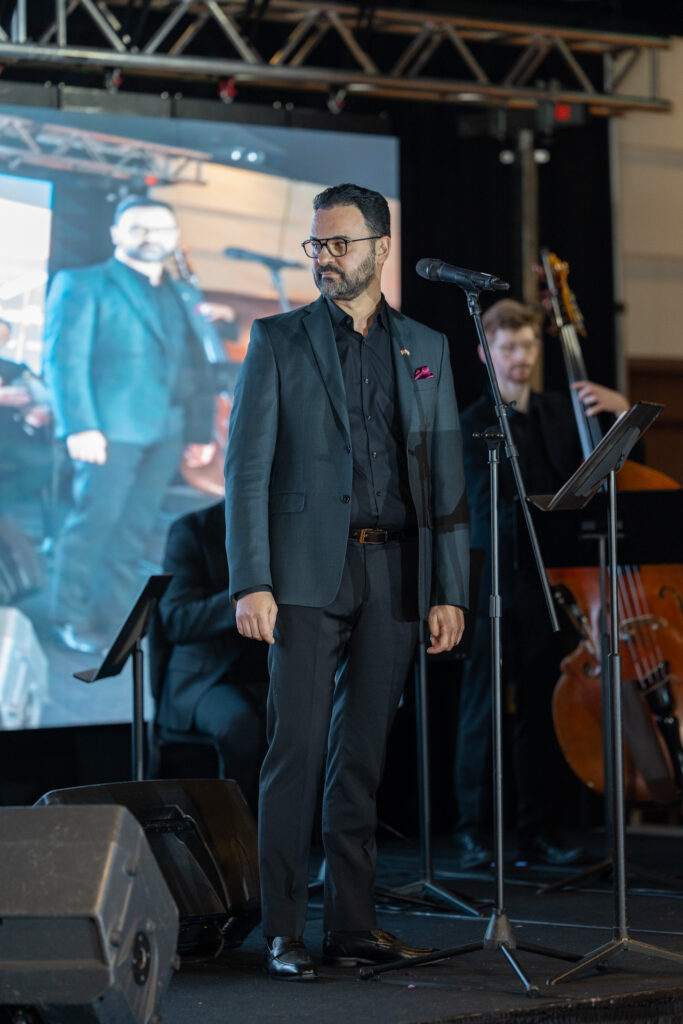
Fairuz, with her ethereal voice and evocative melodies, stands as a symbol of Lebanese heritage and pride. Her music transcends national borders, captivating audiences around the globe. Vocalist Nibal Malshi performed selections from Fairuz’s most legendary songs, celebrating the timeless beauty and cultural significance of her work.
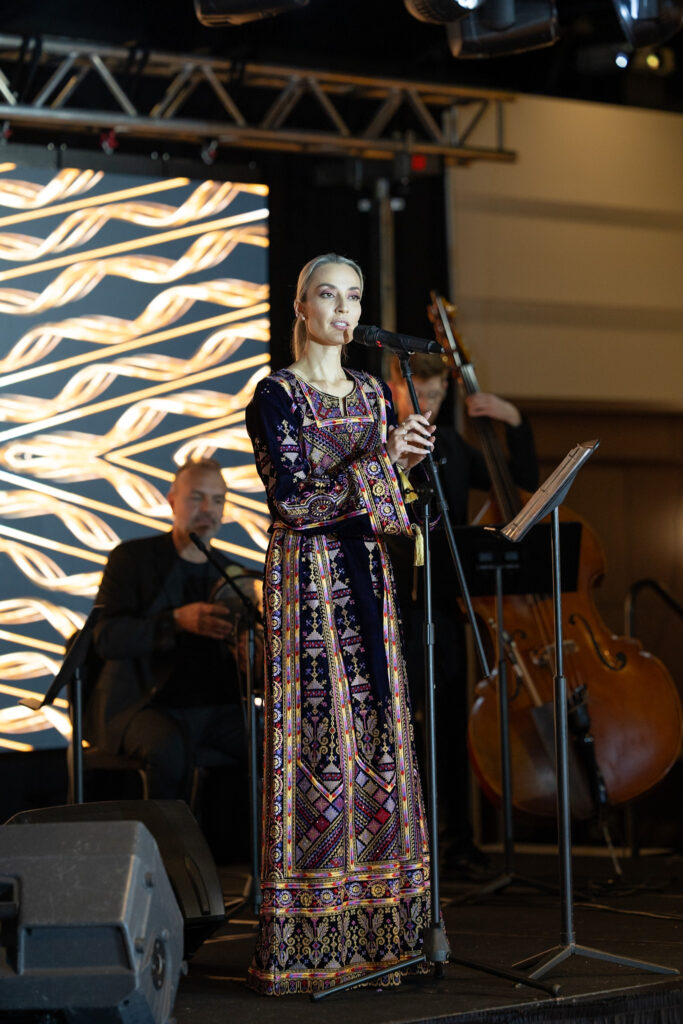
Sabah Fakhri was a legendary Syrian tenor and an iconic figure in traditional Arab music, celebrated for his powerful voice and exceptional skill in the Muwashahat and Qudud Halabiya genres. Vocalist Abdulsalam Alnajjar performed a selection of Fakhri’s most beloved songs.
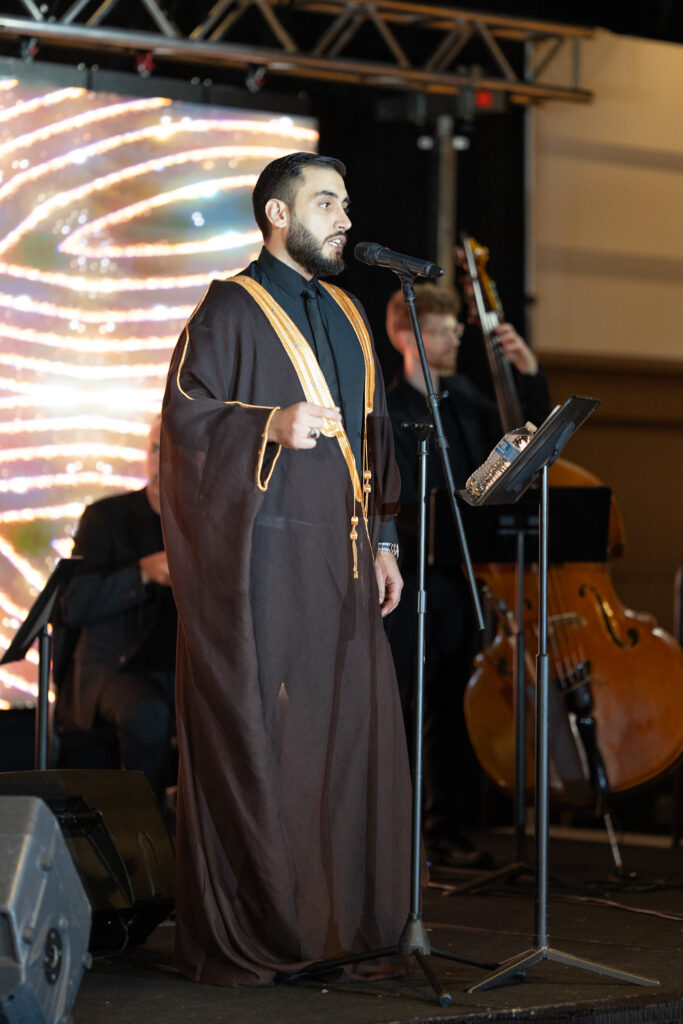
Day Two: CONNECT Empowerment Summit
Day two featured four sets of panels focused on various topics: the contributions of the public service sector; strategies for empowering and shaping the political future of Arab Americans; the recognition of Arab American women who have made significant impacts in our community; and the media’s role in misrepresenting Arab American identity while addressing our civil rights.
Leading Change: Arab Americans in Public Service
This discussion emphasized the importance of community involvement in government, with panelists sharing personal experiences and insights on how Arab Americans can make meaningful contributions. It began with a reminder of how essential it is to have Arab Americans in positions of influence to ensure continuous advocacy and pressure from within the system. Elected officials, such as those present, play a vital role in delivering results and amplifying the voices of their constituents through government networks. Chief Jamiel Altaheri shifted the focus toward law enforcement, stressing that meaningful change in policing and community relationships can only occur from the inside.
Drawing from his experience in New York City, he recalled that when he joined the police force, Arab American representation was minimal. Over time, however, the community’s involvement grew, with over 400 Arab Americans now working within the NYPD, many of whom have risen to significant positions, such as detectives, sergeants, and captains. He encouraged Arab Americans to join law enforcement to foster better relationships and reform from within. As the discussion turned to representation at the county level, Assad Turfe, the Deputy County Executive of Wayne County, Michigan, discussed the impact of diversity within his office and how it has propelled both the Arab American community and the county as a whole forward. He emphasized that brilliance exists across all walks of life, but opportunities do not, which is why it is crucial to have a staff that reflects the diversity of the population they serve.
Alabas Farhat echoed these themes, pointing out that while the Arab American community has made significant strides, navigating government structures remains a challenge. He emphasized the importance of education and collaboration between government officials and the community, highlighting how public servants need to bridge gaps by making resources accessible. Farhat also stressed the significance of building coalitions to advance civil rights and public services. Reflecting on the past, he noted how representation has evolved, citing the absence of Arab American officials in Michigan in the early 2000s compared to today. He celebrated milestones such as Rashida Tlaib’s election to Congress, showcasing the growing political power of Arab Americans in Michigan. Farhat concluded by quoting a proverb: if you want to go fast, go alone, if you want to fo far, go together,” emphasizing the need for coalition-building to ensure long-term success and meaningful change.
Rising Leaders Ceremony
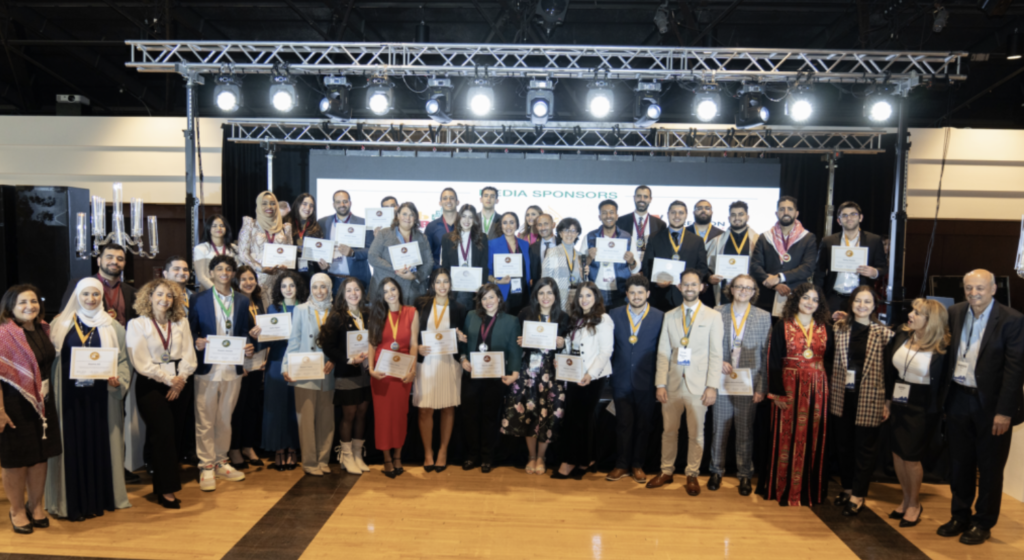
The Arab America Foundation (AAF) proudly recognized its Rising Leaders across all categories: 40 Under 40, 30 Under 30, and 20 Under 20. These honorees, representing a new generation of Arab American leaders, were celebrated for their remarkable achievements, dedication to the community, and commitment to cultural heritage. Each awardee received a certificate and a distinguished medallion to honor their contributions and accomplishments. By honoring these young leaders, AAF highlights the talent, drive, and dedication within the Arab American community, inspiring future generations to pursue excellence and advocacy. This celebration of Rising Leaders underscores AAF’s mission to build a supportive and empowering network that fosters unity, pride, and leadership within the Arab American community.
Empowering the Arab American Vote: Shaping Our Political Future
This panel examined the pivotal role of Arab Americans in shaping the future of U.S. politics by harnessing their collective voting power in upcoming elections. Panelists discussed effective strategies for boosting voter turnout, identifying key issues that resonated with the Arab American community, and navigating the political landscape to amplify Arab American voices.
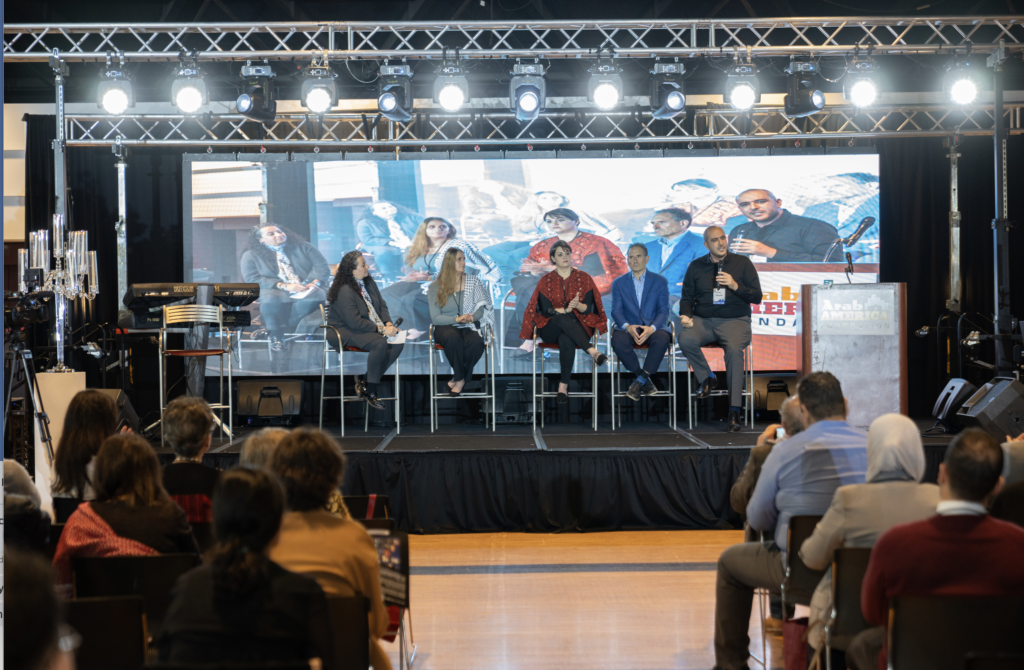
Our moderator for the evening was Maya Berry, Executive Director of the Arab American Institute. She has recently made headlines for her passionate advocacy for Arabs across America in the political arena. Joining her was a distinguished panel of voices: Abbas Alawieh, Co-Chair of the Uncommitted National Movement; Rania Batrice, a savvy political and non-profit strategist; Layla Elabed, Campaign Manager for Listen to Michigan and Co-Chair of the Uncommitted National Movement; and Andy Levin, former U.S. Congressman from Michigan. Together, they eloquently represented Arab identity in the political landscape.
Their diverse backgrounds and profound influence on the national stage captivated our community, igniting inspiration and providing vital context for navigating the upcoming election. Their insights sparked meaningful conversations, empowering us to engage thoughtfully and purposefully in this pivotal moment.
Connecting with Arab American Women: We Hear You, We See You
This panel showcased the voices, experiences, and leadership of Arab American women from diverse sectors. The discussion delved into their challenges and triumphs, as well as their expanding influence in fields such as business, activism, education, and community building. Panelists shared personal stories, empowerment strategies, and insights on how Arab American women could continue to break barriers and foster a more inclusive future.
Under the guidance of moderator Dr. Debbie Almontaser—an esteemed educator, entrepreneur, speaker, and author—our panelists provided invaluable insights on the experiences of women in our community. Randa Adra, an attorney and partner at Crowell and Moring and recognized as a 40 Under 40 honoree for 2023; Hama Hinnawi, a feminist artist and fashion designer; Alma Korkor, president of the National Arab American Women’s Association; and Sarah Shendy, a police lieutenant at Case Western Reserve University, shared their powerful stories.
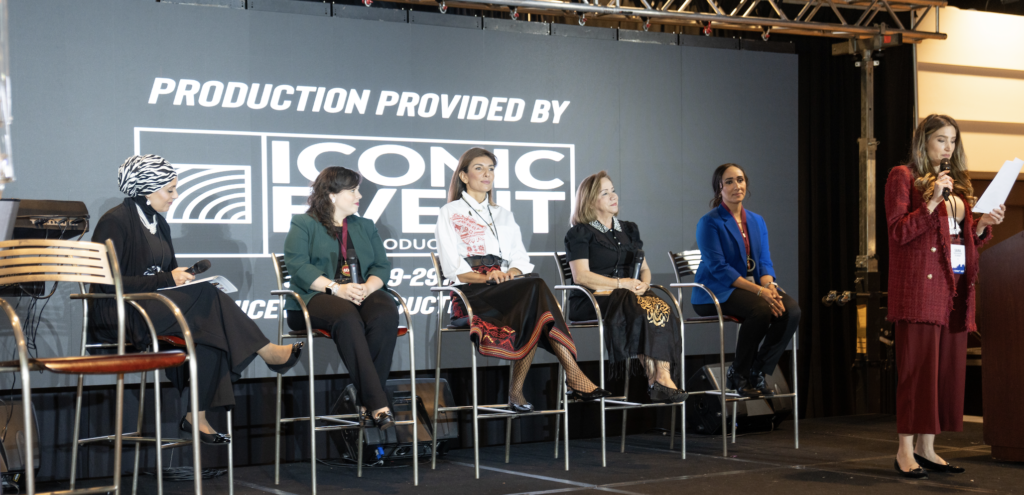
Their impactful contributions as Arab American women inspired those in attendance and set a high standard for future generations.
Countering Misrepresentations of Arabs in America: Media, Civil Rights, and Beyond
This panel explored practical strategies to address the misrepresentation of Arabs in America across various sectors, such as media, civil rights, Palestine advocacy, the workplace, students, academia, and entertainment. Experts discussed how these misrepresentations fueled discrimination and impeded progress while offering actionable solutions to challenge stereotypes, advocate for justice, and promote accurate representation.
It included several prominent figures, with Abderrahim Foukara, the Washington, D.C. bureau chief for Al Jazeera and host of Min Washington, serving as the moderator. Among the panelists were Nabih Ayad, founder and chairman of the Arab American Civil Rights League; Rush Darwish, president of the Arab American Business and Professional Association and organizer of Arab Americans 4Ward; Rosina Hassoun, professor of sociology at Saginaw Valley State University; and Rami Khouri, a policy fellow at AUB and nonresident senior fellow at the Arab Center DC.
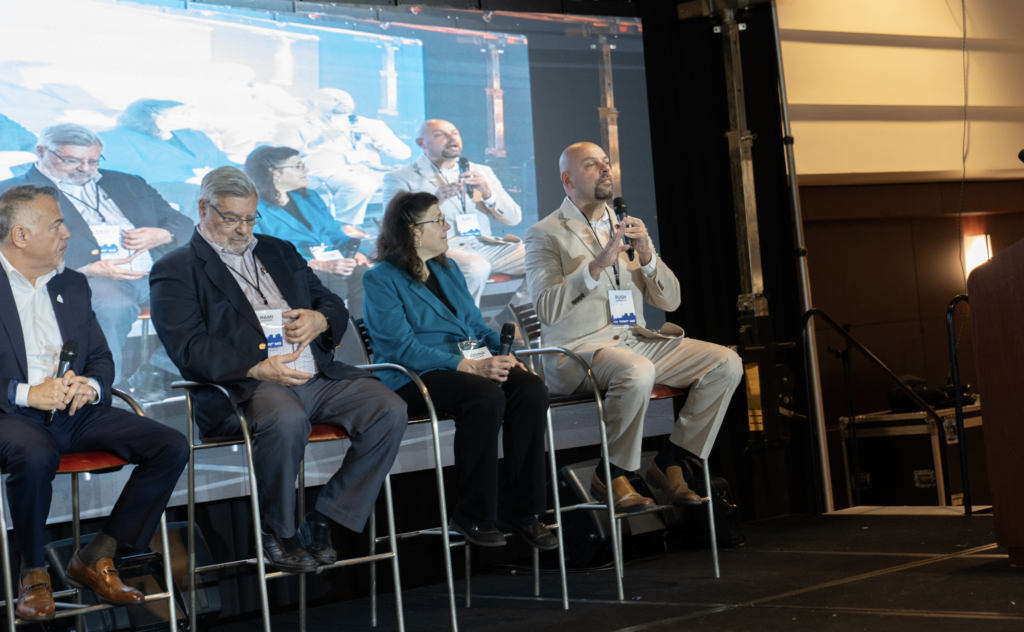
During the panel discussion, Rami Khouri highlighted the power of social media in countering stereotypes and emphasized the importance of organizations that disseminate factual information about Arabs and Arab Americans. He also stressed the need for coalition-building with other minority groups to combat shared challenges. Khouri noted that while past struggles involved the media silencing Arab American voices, today’s challenges include efforts to criminalize pro-Palestinian activism under the pretext of combating antisemitism.
Rosina Hassoun addressed the invisibility of Arabs in academia, pointing to underrepresentation and misinformation in curricula. She shared that many Arab American students feel isolated and encouraged parents to advocate for their children. Hassoun also underscored the need for donations to schools and universities to combat misrepresentation. Nabih Ayad discussed the legal challenges Arab Americans face, such as jurors’ racist assumptions, which force Arab Americans to prove their innocence. He noted how even sending money to family overseas can be used as grounds to accuse them of supporting terrorism. Rush Darwish focused on workplace discrimination, explaining that Arab Americans are often rejected from jobs due to their Arab- or Muslim-sounding names. He urged the community to become more visible, especially on social media and advocated for Arab Americans to run for public office to represent their interests. Additionally, he pointed out a gap in funding between faith-based organizations and initiatives aimed at countering misrepresentation.
Together, the panelists underscored the urgent need for collective action and advocacy to challenge systemic biases and secure a more equitable representation for Arab Americans across various sectors.
Al Rabitah Gala Banquet
At the Al Rabitah Gala Banquet, we were honored to feature inspiring addresses from prominent leaders, including Dearborn Mayor Abdullah Hammoud, Dr. James Zogby of the Arab American Institute, and Congressman Ro Khanna (D-CA).
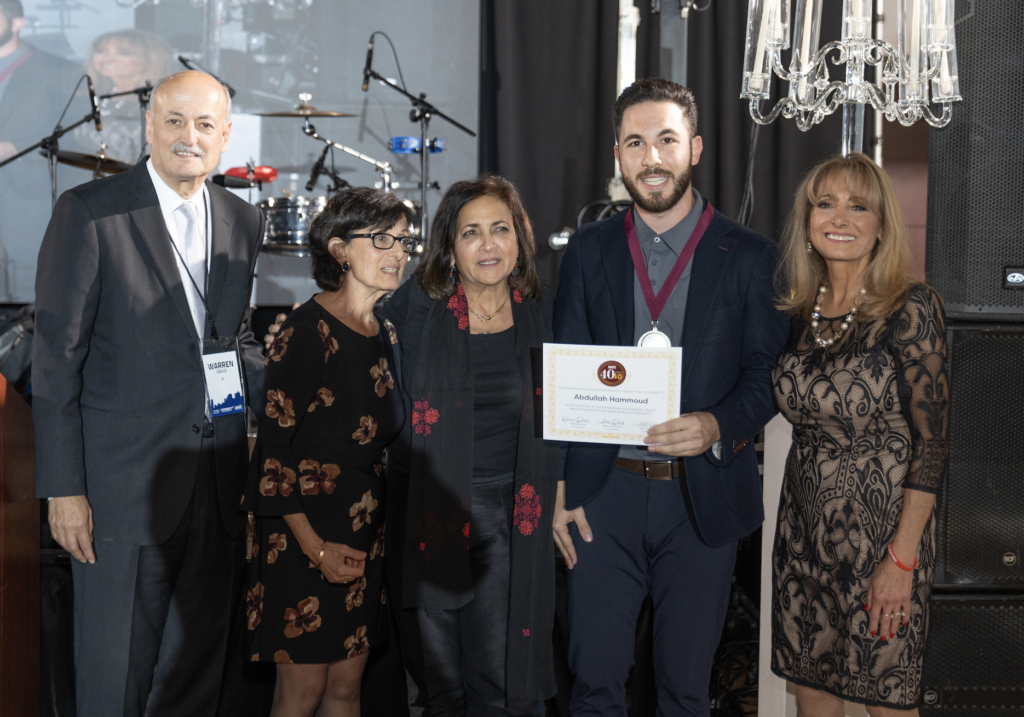
Each speaker passionately underscored the importance of Arab American empowerment, civic engagement, and the critical role of voting in shaping a brighter future for the community. Mayor Hammoud shared his experiences as a public servant dedicated to advancing Arab American representation, while Dr. Zogby emphasized the power of unified voices advocating for equality and justice.
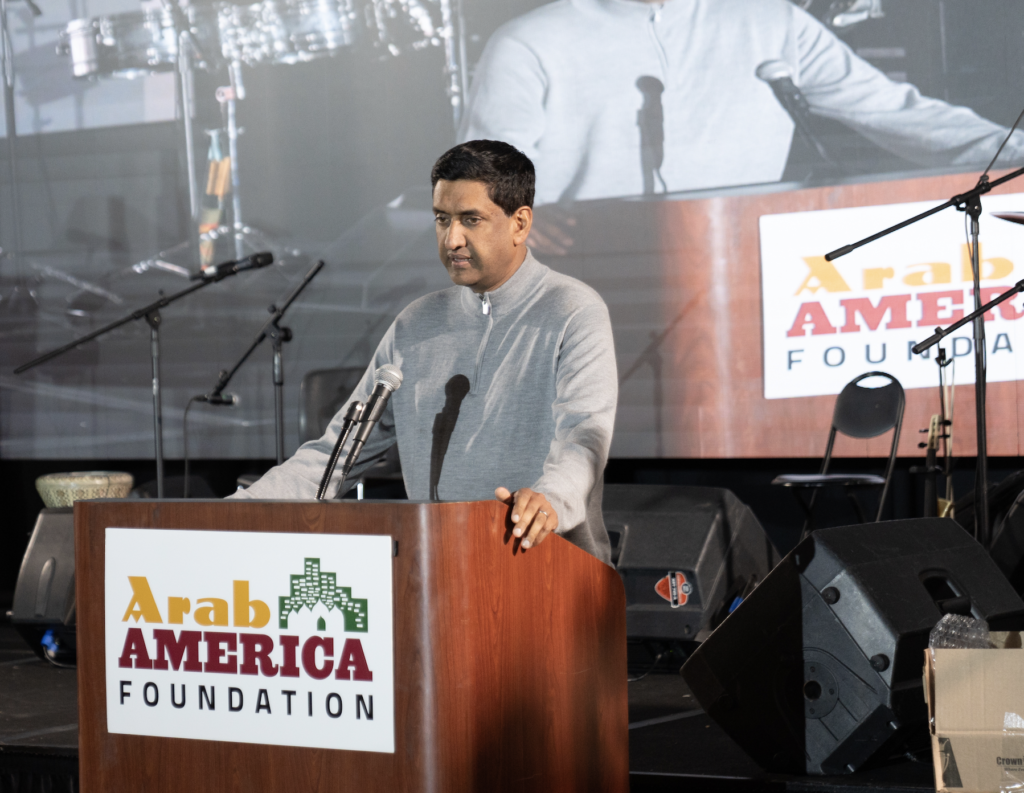
Congressman Khanna highlighted the influence of Arab American votes, especially in key swing states, and urged attendees to engage actively in the political process. Their speeches served as a powerful reminder of the collective strength Arab Americans hold when they vote and participate in civic life, inspiring all in attendance to make their voices heard.
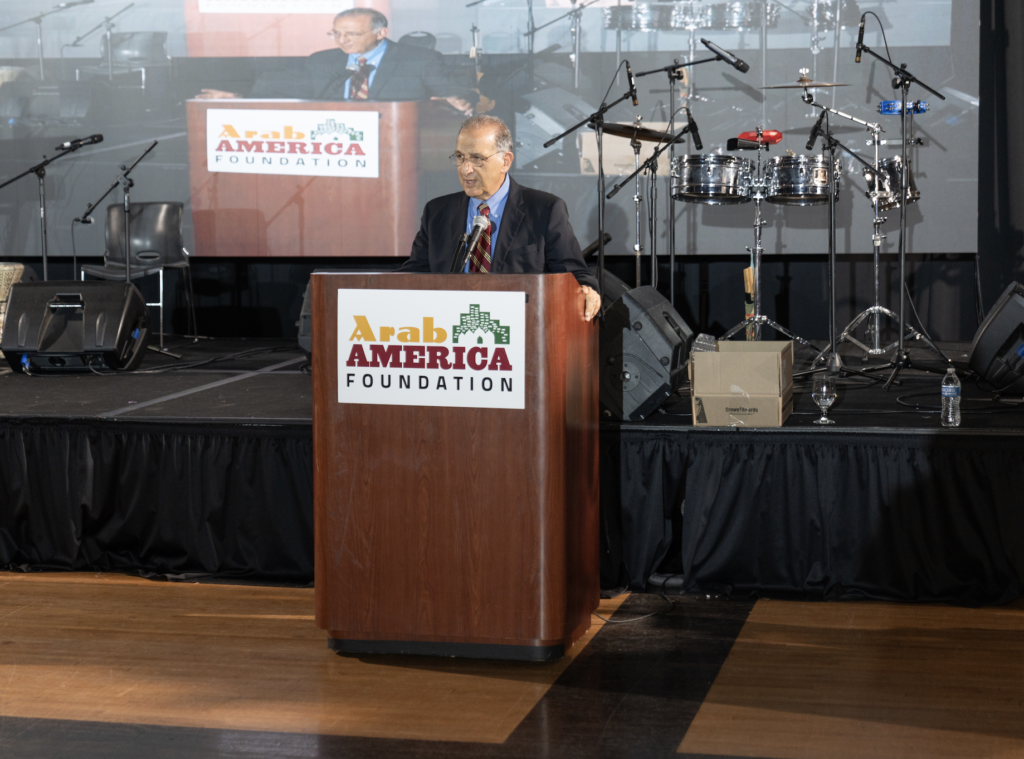
Visit Arab America’s blog here!








